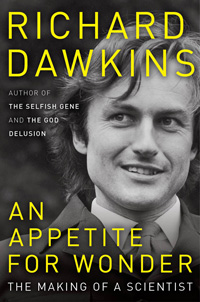Reviews
Early reviews were mixed. Marek Kohn of The Independent newspaper described it as warm and generous, [3] while Eric Liebetrau of the Boston Globe [4] states the book's title is "ultimately a misnomer, as much of the narrative is a slog." The satirical magazine Private Eye describes it as "profoundly irksome...colourless....The self-absorption is extraordinary." Instead of providing a reflective memoir Dawkins "huffs and harangues". [5] Leah Libresco Sargeant, writing for First Things , finds the book "invites comparisons with C. S. Lewis' Surprised by Joy . Both are memoirs by thinkers who seemed a little surprised to end up as apologists, much less as writers whom growing numbers would credit with their conversion or de-conversion." [6]
In a review described by theologian Peter Leithart as "the very definition of withering", [7] philosopher John Gray, writing in The New Republic , criticized the book's "tone of indulgent superiority" and "Dawkins' inveterate literal-mindedness", and commented that Dawkins "writes well – fluently, vividly, and at times with considerable power. But the ideas and the arguments that he presents are in no sense novel or original, and he seems unaware of the critiques of positivism that appeared in its Victorian heyday." [8] In his review, which was described by atheist philosopher Stephen Law as "embarrassingly awful", [9] Gray also criticized the frequent self-comparisons Dawkins makes to Darwin, writing "no two minds could be less alike" and that "(Darwin) understood science as an empirical investigation in which truth is never self-evident and theories are always provisional... Dawkins sees science as the triumph of certainty over superstition. But he shows very little interest in asking what scientific knowledge is or how it comes to be possible." [8]
In The Independent, Brandon Robshaw describes the book as "[...] a generous appreciation and admiration of the qualities of others, as well as a transparent love of life, literature – and science". [10]

Richard Dawkins is a British evolutionary biologist, zoologist, science communicator and author. He is an emeritus fellow of New College, Oxford, and was Professor for Public Understanding of Science in the University of Oxford from 1995 to 2008. His book The Selfish Gene (1976) popularised the gene-centred view of evolution and coined the word meme. Dawkins has won several academic and writing awards.

The Extended Phenotype is a 1982 book by the evolutionary biologist Richard Dawkins, in which the author introduced a biological concept of the same name. The book's main idea is that phenotype should not be limited to biological processes such as protein biosynthesis or tissue growth, but extended to include all effects that a gene has on its environment, inside or outside the body of the individual organism.
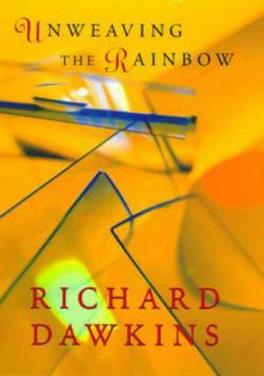
Unweaving the Rainbow: Science, Delusion and the Appetite for Wonder is a 1998 book by the evolutionary biologist Richard Dawkins, in which the author discusses the relationship between science and the arts from the perspective of a scientist.

Alister Edgar McGrath is a Northern Irish theologian, Anglican priest, intellectual historian, scientist, Christian apologist, and public intellectual. He currently holds the Andreas Idreos Professorship in Science and Religion in the Faculty of Theology and Religion, and is a fellow of Harris Manchester College at the University of Oxford, and is Professor of Divinity at Gresham College. He was previously Professor of Theology, Ministry, and Education at King's College London and Head of the Centre for Theology, Religion and Culture, Professor of Historical Theology at the University of Oxford, and was principal of Wycliffe Hall, Oxford, until 2005.

The Root of All Evil?, later retitled The God Delusion, is a television documentary written and presented by Richard Dawkins in which he argues that humanity would be better off without religion or belief in God.
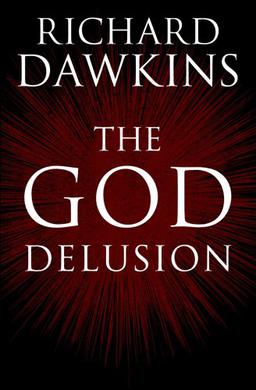
The God Delusion is a 2006 book by British evolutionary biologist and ethologist Richard Dawkins. In The God Delusion, Dawkins contends that a supernatural creator, God, almost certainly does not exist, and that belief in a personal god qualifies as a delusion, which he defines as a persistent false belief held in the face of strong contradictory evidence. He is sympathetic to Robert Pirsig's statement in Lila (1991) that "when one person suffers from a delusion it is called insanity. When many people suffer from a delusion it is called religion." In the book, Dawkins explores the relationship between religion and morality, providing examples that discuss the possibility of morality existing independently of religion and suggesting alternative explanations for the origins of both religion and morality.

Richard Dawkins: How a Scientist Changed the Way We Think is a festschrift of 25 essays written in recognition of the life and work of Richard Dawkins. It was published in 2006, to coincide with the 30th anniversary of the publication of The Selfish Gene. A wide range of topics is covered from many fields including evolutionary biology, philosophy, and psychology. Space is also given to writers who are not in full agreement with Dawkins. The book is edited by two of Dawkins' former PhD students, Alan Grafen and Mark Ridley. (ISBN 9780199291168)
"Go God Go" is the twelfth episode in the tenth season of the American animated television series South Park. The 151st episode of the series overall, it originally aired on Comedy Central in the United States on November 1, 2006. The episode is the first in a two-part story arc, which concludes with "Go God Go XII".

Darwin's Angel is a book published in response to Richard Dawkins' The God Delusion. It was written by John Cornwell and subtitled An Angelic Riposte to The God Delusion.

The following list of publications by Richard Dawkins is a chronological list of papers, articles, essays and books published by British ethologist and evolutionary biologist Richard Dawkins.
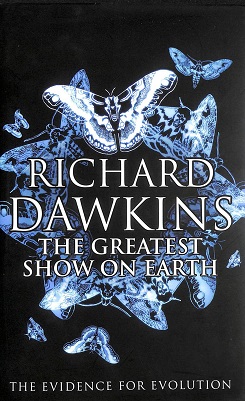
The Greatest Show on Earth: The Evidence for Evolution is a 2009 book by British biologist Richard Dawkins, which was released on 3 September 2009 in the UK and on 22 September 2009 in the US. It sets out the evidence for biological evolution, and is Dawkins's 10th book, following his best-selling critique of religion The God Delusion (2006) and The Ancestor's Tale (2004), which traces human ancestry back to the dawn of life.
The term New Atheism describes the positions of some atheist academics, writers, scientists, and philosophers of the 20th and 21st centuries. New Atheism advocates the view that superstition, religion, and irrationalism should not be tolerated. Instead, they advocate the antitheist view that the various forms of theism should be criticised, countered, examined, and challenged by rational argument, especially when they exert strong influence on the broader society, such as in government, education, and politics. Critics have characterised New Atheism as "secular fundamentalism" or "fundamentalist atheism". Major figures of New Atheism include Richard Dawkins, Sam Harris, Christopher Hitchens, and Daniel Dennett, collectively referred to as the "Four Horsemen" of the movement.
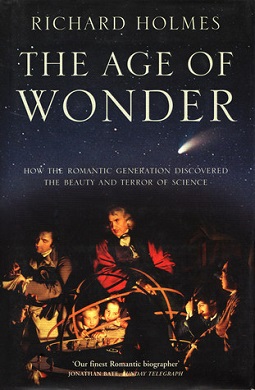
The Age of Wonder: How the Romantic Generation Discovered the Beauty and Terror of Science is a 2008 popular biography book about the history of science written by Richard Holmes. In it, the author describes the scientific discoveries of the polymaths of the late eighteenth century and how this period formed the basis for modern scientific discoveries. Holmes, a literary biographer, also looks at the influence of science on the arts in the Romantic era. The book won the 2009 Royal Society Prize for Science Books, the 2009 National Book Critics Circle Award for General Nonfiction, and the 2010 National Academies Communication Award.
Over Norton Park is a farm of 210 acres at Over Norton, lying to the north of Chipping Norton, in the Cotswolds, Oxfordshire, England. It has been in the Dawkins family since the 1720s. Originally a larger country estate, it was inherited by John Dawkins (1915–2010), the father of the biologist Richard Dawkins, under whose management it became a single commercial farm which he farmed himself.

The Magic of Reality: How We Know What's Really True is a 2011 book by the British biologist Richard Dawkins, with illustrations by Dave McKean. The book was released on 15 September 2011 in the United Kingdom, and on 4 October 2011 in the United States.

A History of the Mind: Evolution and the Birth of Consciousness is a 1992 book about the mind–body problem by the psychologist Nicholas Humphrey. Humphrey advances a hypothesis about consciousness that has been criticised as speculative.

Richard Dawkins is an English ethologist, evolutionary biologist, and writer. Dawkins himself has stated that his political views are left-leaning. However, many of Dawkins's political statements have created controversy among left-wing and atheist communities.

Brief Candle in the Dark: My Life in Science is the second volume of the autobiographical memoir by British evolutionary biologist Richard Dawkins. It was published in English in September 2015.

Faith Versus Fact: Why Science and Religion Are Incompatible is a 2015 book by the biologist Jerry Coyne concerning the relationship between science and religion. Coyne argues that religion and science are incompatible, by surveying the history of science and stating that both religion and science make claims about the universe, yet only science is open to the fact that it may be wrong.
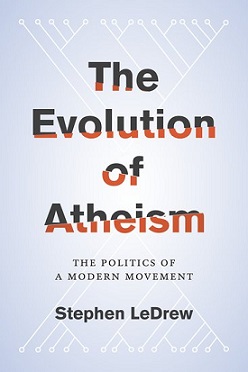
The Evolution of Atheism: The Politics of a Modern Movement is a 2015 book by Stephen LeDrew, adapted from his PhD dissertation. Though an atheist, LeDrew criticises the movement of New Atheism, which arose in the 2000s with the "Four Horsemen" Richard Dawkins, Daniel Dennett, Sam Harris and Christopher Hitchens as prominent figures.
